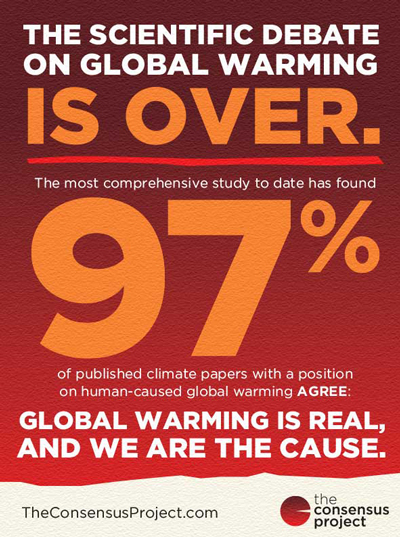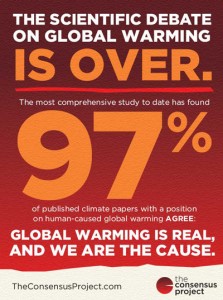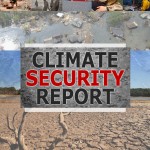
The Scientific Consensus for Man-Made Climate Change
Out today is a new study from the Consensus Project that shows the overwhelming scientific consensus is that climate change is real and is caused by man-made emissions of greenhouse gases. This study presents a survey of all peer-reviewed papers in scientific journals about climate change from 1991 until 2011. In that time, there were nearly 14,000 papers published on either ‘global warming’ or ‘global climate change.’ 97% of the papers that expressed a view agreed with the basic fact that climate change was caused by humans.
Importantly, as the science became better understood, the consensus has become stronger – they identify a 90% consensus at the beginning of the time period in question, 1991, that grew to a 98% consensus by 2011.
The truth, of course, is that there’s no real debate within the scientific community about whether or not climate change is real or caused by man. The scientific debates are about how damaging climate change will be and how sensitive the system is to human inputs.
Importantly, the study only looks at peer reviewed papers. Peer review is important because that means that a statement of fact within the report has been verified by other experts in the field. For centuries, this is how science works: an assertion is made by a scientist, and then their peers test that hypothesis to see if it holds water. In today’s world, anybody can have an opinion and write a blog or get on TV as an ‘expert’ – but it takes a significant step further to have that opinion peer-reviewed as fact.
So – memo to journalists – the next time you look for a counter point to your story about climate change, ask whether the scientists assertions have been peer reviewed. And – memo to the general public – lets stop having a debate about the science: a debate which scientists are no longer having. Instead, let’s hear a debate about solutions.
Finally – memo to policymakers – if you don’t want to implement a ‘cap and trade’ or a carbon tax, that is a valid position, but you cannot argue that its because of ‘questions’ about the science. It is simply no longer credible (whether it was at any time) to say that ‘the jury is still out’ on climate science.
You can argue that the impacts won’t be harmful or that the costs will outweigh the benefits, but you cannot argue that the science is wrong. By the way, ASP’s work conclusively finds that climate change will have significant impacts on national and homeland security (see our Climate Security Report), and argues that the costs of inaction on climate change are far beyond the costs of action (see our Pay Now, Pay Later report).
Protecting the Homeland – the Rising Costs of Inaction on Climate Change by The American Security Project








[…] A good start would be to commit to shoring up preparedness through a national resiliency initiative. Upgrading infrastructure such as ports, bridges, bulkheads and levees is a needed step in storm-prone coastal areas. Establishing a U.S. infrastructure bank would help tap private-public funding sources. As well, taking climate change seriously as a national security issue is a crucial first step toward… […]
[…] than enough knowledge to know that climate change is potentially dangerous – we know that 97% of scientists agree with the basic tenets of the science: the climate is warming, and that warming is caused by […]